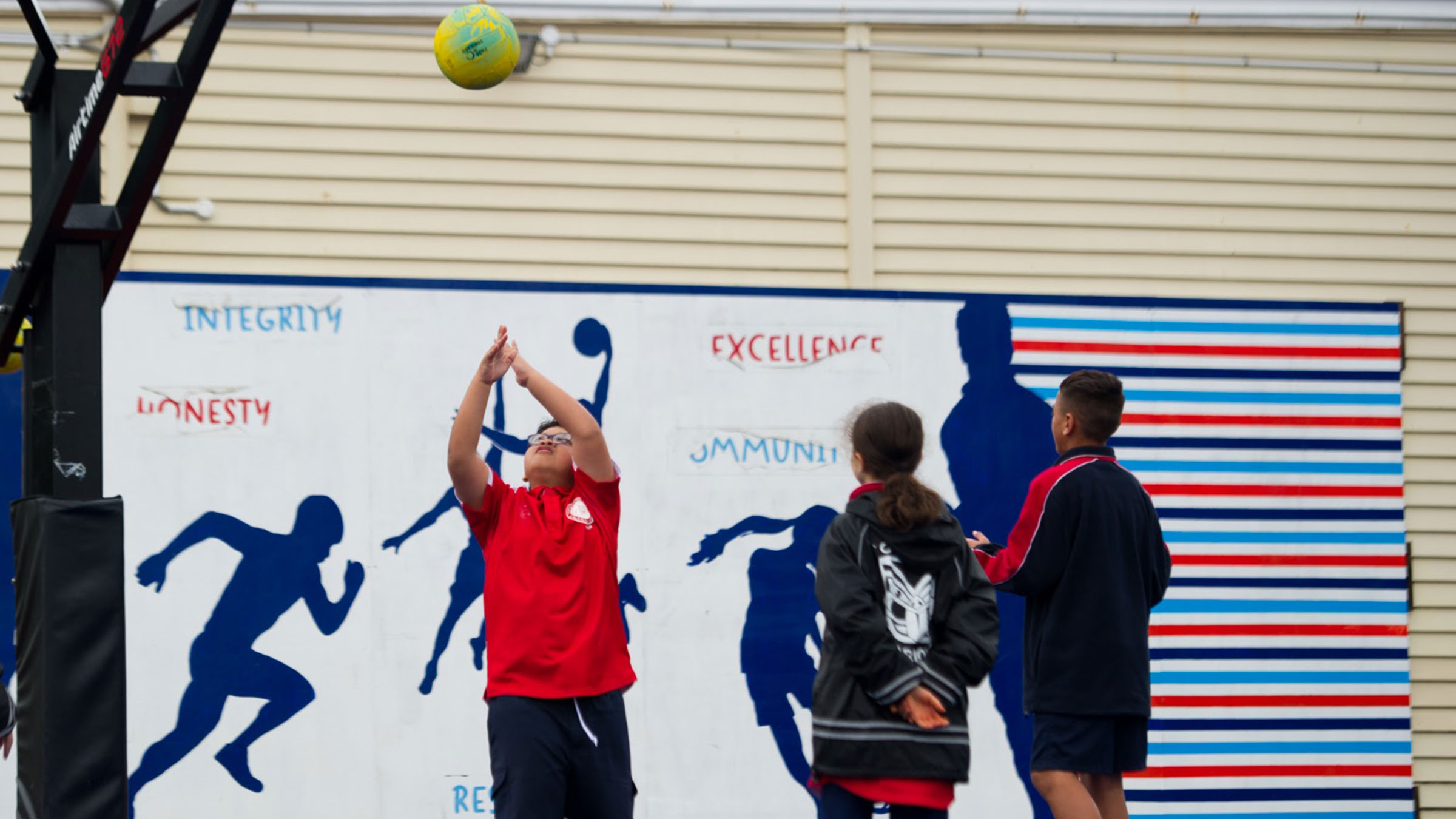Physical activity
The physical activity key area of learning encourages ākonga to enjoy movement, to learn about movement culture, and to develop positive attitudes towards regular participation in physical activities.

What is physical activity education?
Physical activity contributes to and promotes learning:
- In movement – by developing the physical skills of ākonga in a range of physical activity contexts
- Through movement – using the medium of physical activity, ākonga develop knowledge of themselves and other people, social skills, and positive attitudes and values
- About movement – by examining scientific, social, and cultural aspects of physical activity.
In recognising New Zealand’s unique bicultural heritage, physical activity embraces ngā mahi a rēhia (Māori recreational and leisure activities, including te ao kori). The activities of rēhia develop physical and mental fitness and coordination in te ao Māori contexts. These activities are unique to Aotearoa and foster knowledge, traditions, and movement skills from the past along with adapted contemporary movements.
Te ao kori provides opportunities for the development of fundamental movement skills, using poi, rākau, and whai. Ākonga may also learn more advanced skills, such as those required for a complex poi performance, haka, or mau rākau using taiaha, under the tuition of experts from within the school, from the local marae, or the wider community.
Ākonga who are involved in competitive activities should be encouraged to strive for and enjoy personal and group achievements, to demonstrate fair play, and to accept their personal and social responsibilities.
It is expected that all ākonga will have had opportunities to learn fundamental aquatics skills by the end of year 6.
Skills and knowledge acquired during learning about physical activity
Ākonga require a range of learning opportunities in physical activity. These include opportunities to develop movement skills for physical competence, enjoyment, and a sense of self-worth as well as an active lifestyle. Opportunities could include:
- fundamental movement skills
- dance (including expressive and creative movement)
- play
- games
- aquatics
- athletics
- te ao kori
- gymnastics
- ball activities
- fitness activities
- physical recreational skills.
Ākonga will explore a range of personal and interpersonal skills, strengthening their awareness of personal identity and enhancing their sense of self-worth. They will also learn about their relationships with other people, acquiring skills such as:
- leadership
- co-operation
- goal setting
- communication
- personal and social responsibility
- fair play
- achievement
- ethical decision making
- problem solving.
Ākonga will explore scientific and technological influences on physical activity including knowledge and understanding of:
- cultural practices, including physical activities characteristic of Māori and other ethnic groups
- social influences, including body image, gender, the media, competition, family, friendships, group identity, stereotyping, and discrimination
- their own values, attitudes, behaviours, and actions in physical activity settings including respect for other people, acceptance of diversity, care for the environment, a sense of fair play, and a willingness to become involved.
The underlying concepts in physical activity
The underlying concepts are woven through learning in this area in the following ways:

Physical activity programmes contribute to the enhancement of the physical, mental and emotional, social, and spiritual aspects of hauora by capturing the intrinsic and instrumental values of physical activity.

Physical activities are valued for their intrinsic qualities if people take part in them for fun, for the sheer pleasure or satisfaction of it, out of playfulness, or to express themselves and their creativity.
Physical activities are valued for their instrumental qualities when the activity is a means of achieving specific goals, for example, to develop fitness, improve health, reduce stress, aid relaxation, improve interpersonal skills, or provide opportunities for social interaction.

Through the socio-ecological perspective, ākonga will understand the interdependence of factors that influence decisions they make about physical activity. Ākonga will be encouraged to question their own decisions critically and work towards improving practices relating to physical activity within the school and wider community.

Schools should develop policies and practices that create a positive learning environment by supporting physical activity, promoting emotional safety, encouraging the acceptance of diversity, and providing equitable access to opportunities.